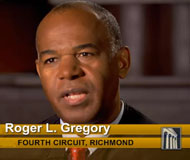Article from: www.thenewspaper.com/news/43/4305.asp
1/10/2014
Maryland Cities Tell Court Photo Tickets Do Not Need To Be Paid
Federal appeals court rejects due process challenge after cities argue that there is no penalty for not paying photo tickets on time.
 The Fourth Circuit US Court of Appeals on Monday rejected a due process challenge to Maryland speed camera citations. In the process of arguing their case, however, Maryland localities argued that there are basically no negative consequences if photo ticket recipients decide to toss their citations in the trash.
The Fourth Circuit US Court of Appeals on Monday rejected a due process challenge to Maryland speed camera citations. In the process of arguing their case, however, Maryland localities argued that there are basically no negative consequences if photo ticket recipients decide to toss their citations in the trash.
Under Maryland law, failure to pay a photo ticket mailed by the private, for-profit company that operates the camera program is an admission of civil liability and it can result in a hold being placed on the renewal of a Maryland vehicle's registration. Plaintiffs in a class action suit argued that these sanctions were imposed without any effort on the part of the jurisdiction to ensure proper notice is received beyond having a vendor drop a letter into a mailbox. A citation recipient, on the other hand, must use certified mail if he wishes to send a sworn statement that he was not the driver. In defending the program during oral arguments before the court, lawyers for the camera jurisdiction pointed out the lack of penalty for ignoring a ticket.
"In fact, your honor, there's not even a late fee associated with this," Kevin Karpinski, attorney for the camera towns, explained. "If I re-registered my vehicle today and I got a speed camera ticket tomorrow, then the only recourse would be two years from now when I have re-register my vehicle in the state of Maryland, they would say, 'Mr. Karpinski your vehicle has been flagged for a speed camera ticket you got two years ago, and you need to get that resolved before we handle your registration.' There's no late fee involved, there's no penalty involved... the deprivation of a property right is very minimal."
The judges sought clarification about what happens when a resident of the District, Virginia or Pennsylvania receive a ticket.
"Quite frankly your honor, in all candor, we have very little recourse against out-of-state motorists," Karpinski explained. "The only recourse we have is regarding registration of the motor vehicle... If they don't pay it, there's not much that can be done about it."
The three-judge appellate panel rejected evidence that towns were violating Maryland law, explaining that this was a matter for state, not federal court. Under the Section 1983 suit that was filed, the federal court can only consider constitutional violations. The judges found first-class mail to be good enough notice for due process.
"It is difficult to imagine a more reasonable attempt at effectuating actual notice of a driving infraction than the use of registration information collected by the state's transportation agency, the Maryland Motor Vehicle Administration," Judge Roger L. Gregory wrote for the court. "Nothing presented to us indicates that the United States Postal Service delivers certified mail at a rate so superior to that of first-class mail that we should declare first-class mail not reasonably calculated to provide actual notice."
The court reasoned that the availability of a state district court trial before a judge eliminated any concern that due process would be denied.
"Any flaws in the citation or enforcement process could have been challenged in the state courts, and appellants failed to do so," Judge Gregory concluded. "Accordingly, the district court's judgment is affirmed."
A copy of the ruling is available in a 50k PDF file at the source link below.
Source: Snider International v. Forest Heights (US Court of Appeals, Fourth Circuit, 1/6/2014)
Permanent Link for this item
Return to Front Page
 The Fourth Circuit US Court of Appeals on Monday rejected a due process challenge to Maryland speed camera citations. In the process of arguing their case, however, Maryland localities argued that there are basically no negative consequences if photo ticket recipients decide to toss their citations in the trash.
The Fourth Circuit US Court of Appeals on Monday rejected a due process challenge to Maryland speed camera citations. In the process of arguing their case, however, Maryland localities argued that there are basically no negative consequences if photo ticket recipients decide to toss their citations in the trash.